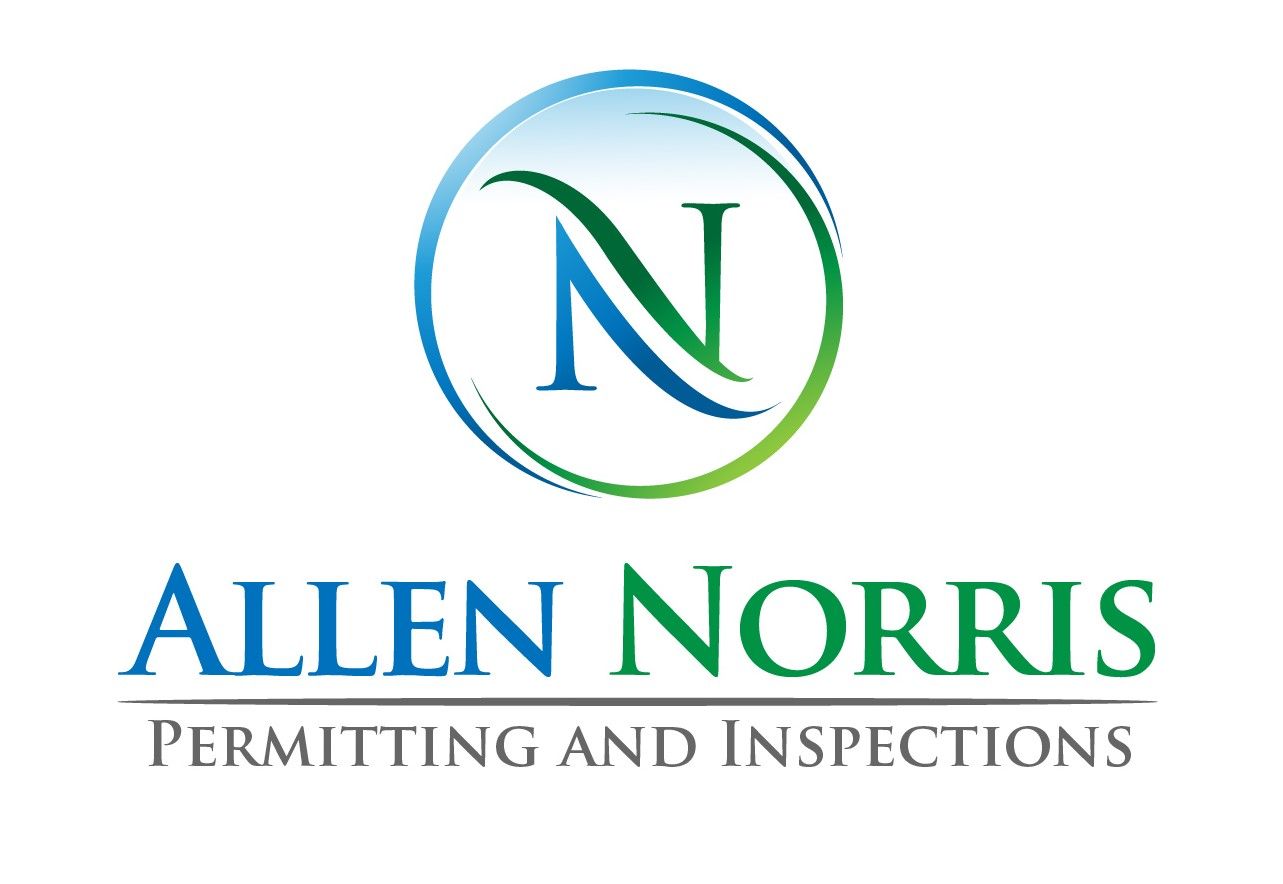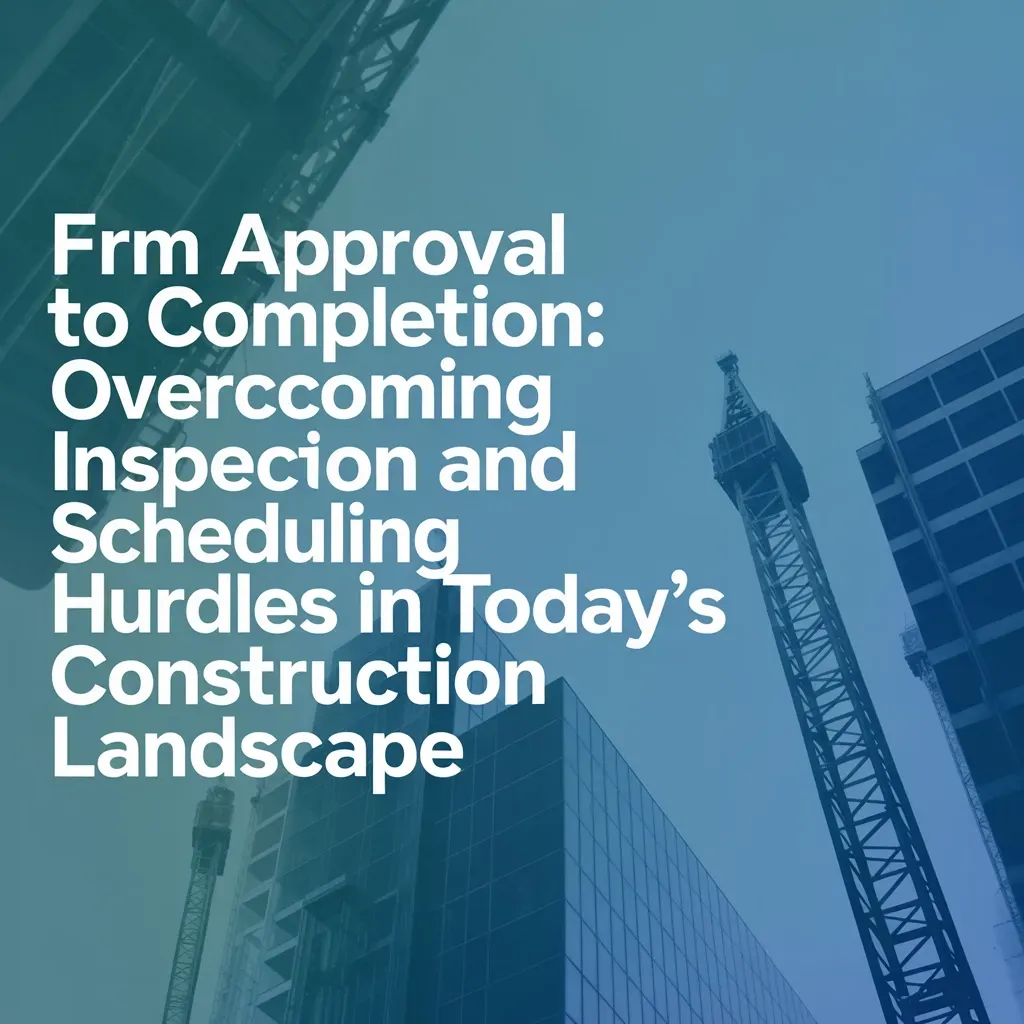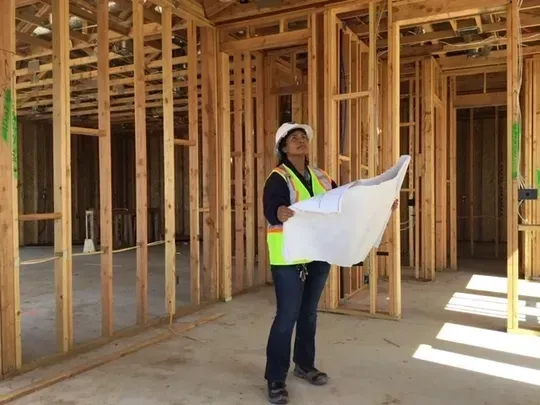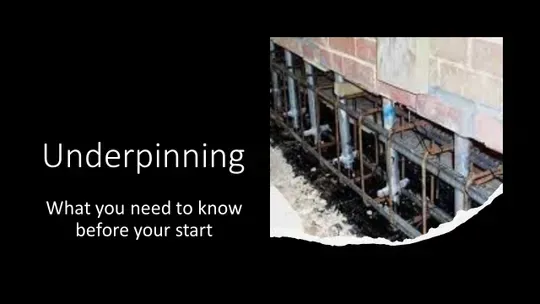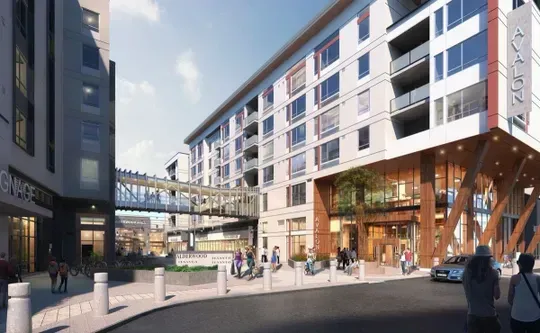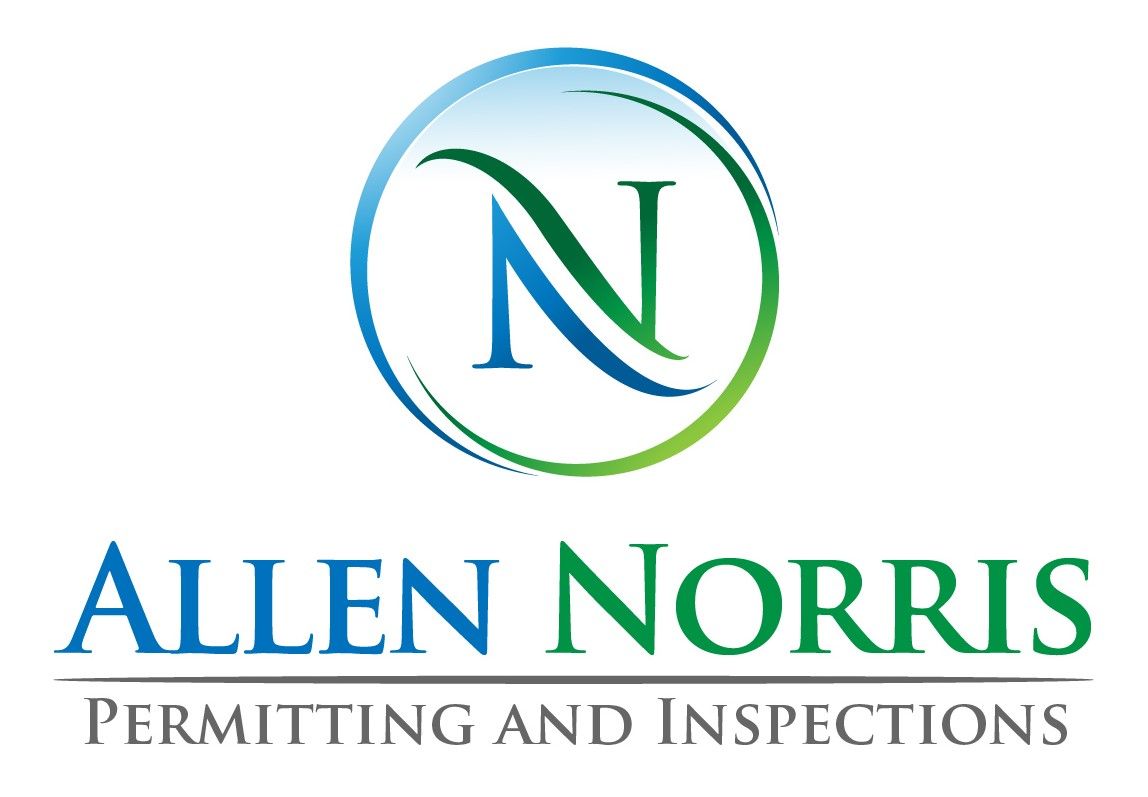Why Permitting Takes So Long (And How to Speed It Up): Insider Tips for Frustrated Builders
Why Permitting Takes So Long (And How to Speed It Up): Insider Tips for Frustrated Builders
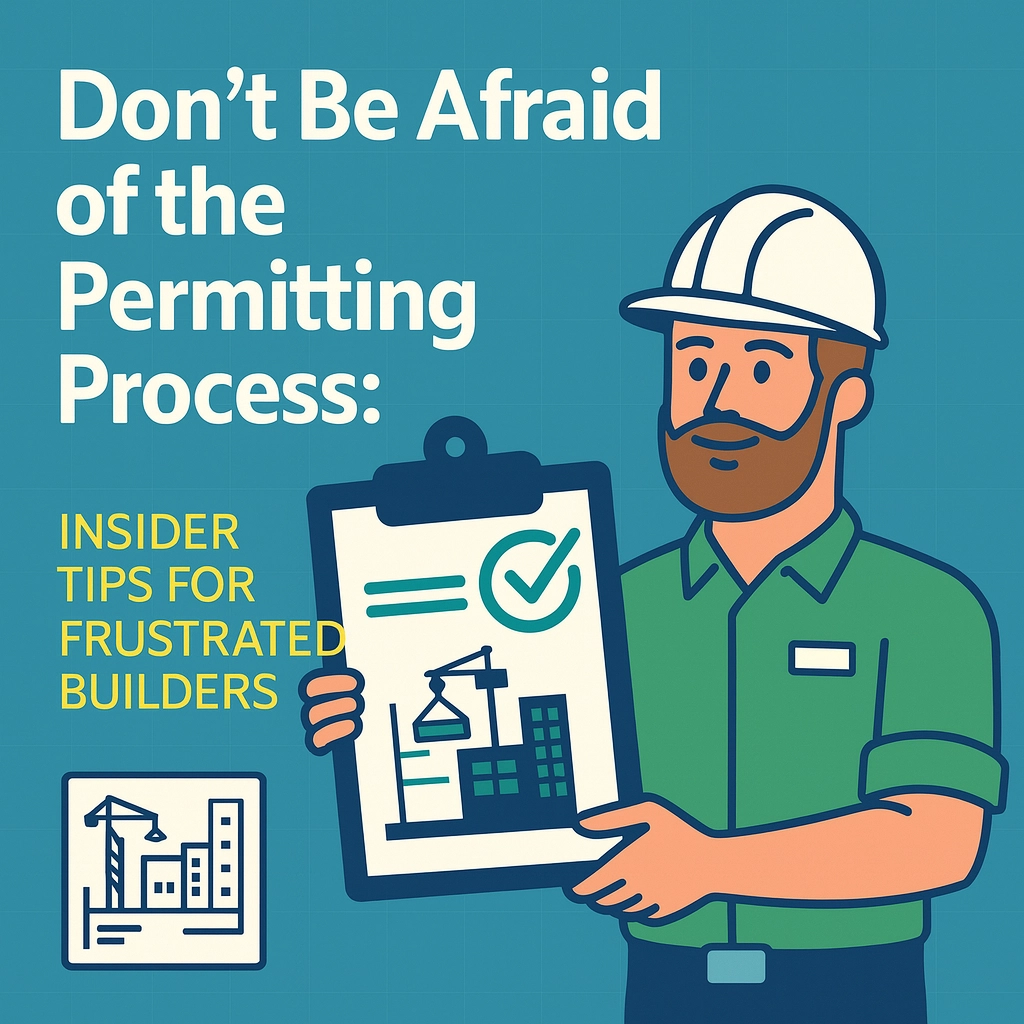
The Painful Truth About Permitting Timelines
If you're in construction, you know the scenario all too well: Your client is eager to break ground, your team is ready to go, and your materials are on order. Then reality hits—you're stuck waiting for permits, watching weeks turn into months while costs mount and schedules collapse.
You're not alone. The typical building permit process often takes 6-12 months or longer to complete, leaving even experienced builders frustrated and projects stalled. But why does it have to be this way?
As permitting specialists who've guided countless projects through this labyrinth, we'll pull back the curtain on why permitting takes so long and share battle-tested strategies to accelerate the process.
Why Does Permitting Take So Long?
The Bureaucratic Maze
The primary reason for permitting delays is the complex web of municipal bureaucracy that every application must navigate. A typical commercial permit requires reviews from at least a dozen different departments:
- Building Department
- Planning & Zoning
- Fire Department
- Public Works
- Health Department
- Environmental Department
- Utilities
- Transportation
- Parks & Recreation
- Historical Preservation (when applicable)
Each department operates with its own priorities, standards, and review timelines. The Fire Department focuses on life safety while Environmental prioritizes ecological impact—and they rarely coordinate their reviews efficiently.
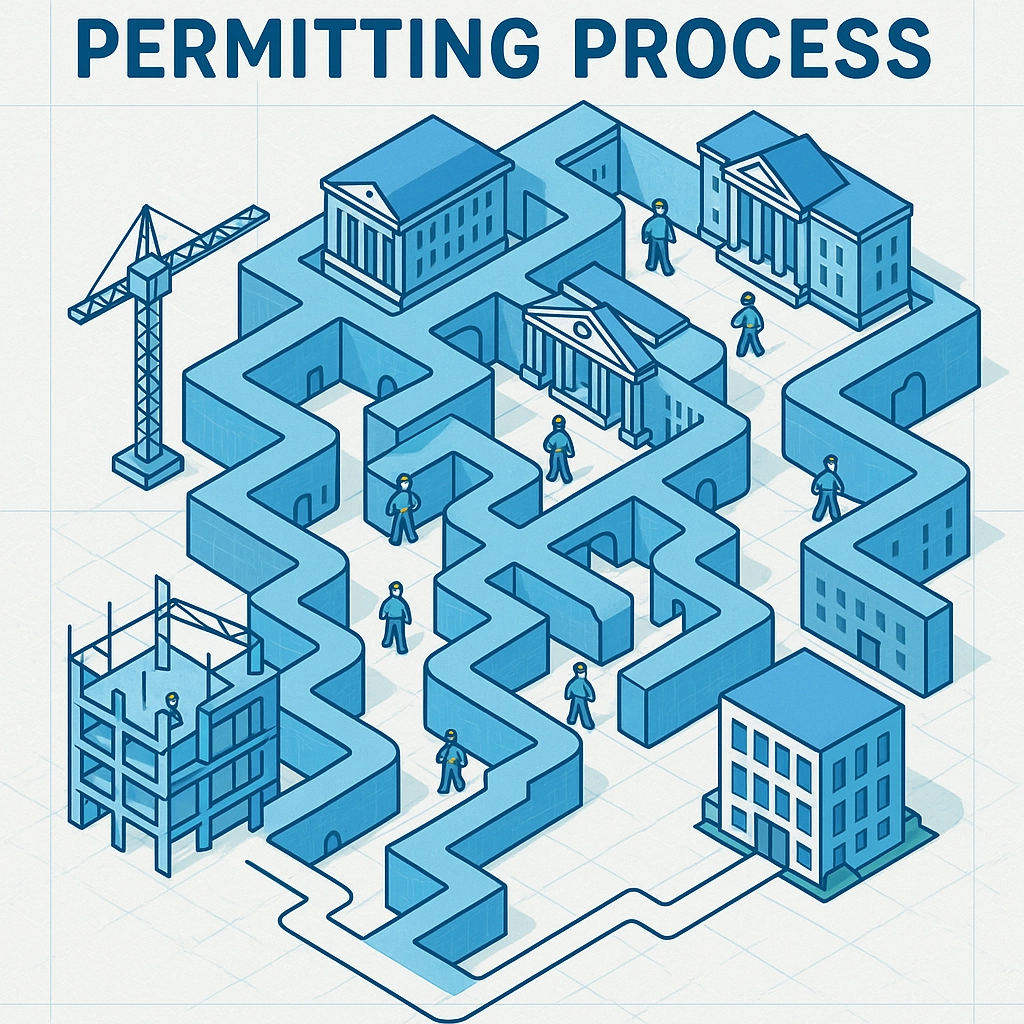
The Multiple Review Cycle Trap
The review process itself compounds delays through multiple phases:
- Initial Submission and Screening(1-2 weeks)
- Plan Review by Multiple Departments(2-8+ weeks)
- Revision Requests(varies significantly)
- Resubmittal and Re-review(1-3 weeks per cycle)
- Final Approval and Permit Issuance(1-5 days)
Here's where things get painful: Each review cycle often uncovers new issues requiring revisions, creating a frustrating loop. While one department might approve your plans, another might request changes that then require re-approval from departments that previously signed off.
The Resource Crunch
Most municipal building departments operate with significant resource constraints:
- Understaffed review teams
- Outdated processing systems
- High application volumes
- Complex and evolving building codes
- Seasonal application surges
These limitations create bottlenecks where your application might sit in a queue for weeks before review even begins. In high-growth areas, this problem intensifies as departments struggle to scale their capacity to match development demand.
The Hidden Costs of Permitting Delays
Permitting delays impact more than just your timeline:
- Carrying costs on land and construction loans
- Inflation of material costs during extended waiting periods
- Labor scheduling disruptions and potential contractor availability issues
- Opportunity costs of capital tied up in delayed projects
- Client relationship strain and potential reputation damage
A three-month delay on a mid-sized commercial project can easily cost hundreds of thousands of dollars—expenses that weren't factored into your original budget.
Strategic Approaches to Accelerate Permitting
1. Front-Load Your Due Diligence
The most impactful strategy for faster permitting is thorough pre-design due diligence. Investing 1-2 weeks upfront can prevent months of delays later.
Before submitting plans or even finalizing designs, verify:
- Zoning compliance for your intended use
- Property setbacks and development restrictions
- Utility connection availability and requirements
- Floodplain status and drainage requirements
- Historical designation status if applicable
- Fire access requirements
- ADA compliance needs
This research helps you design within parameters that will actually get approved, preventing costly redesigns later.
2. Create a Pre-Submission Strategy
Rather than approaching permitting as a single event, treat it as a strategic process:
- Schedule pre-application meetings with key departments
- Identify potential red flags early in the design process
- Build relationships with department reviewers
- Document all conversations with permitting officials
- Research similar recently approved projects in the jurisdiction
At Allen-Norris , we've found that clients who invest in pre-submission strategy typically see 30-40% faster approval times.
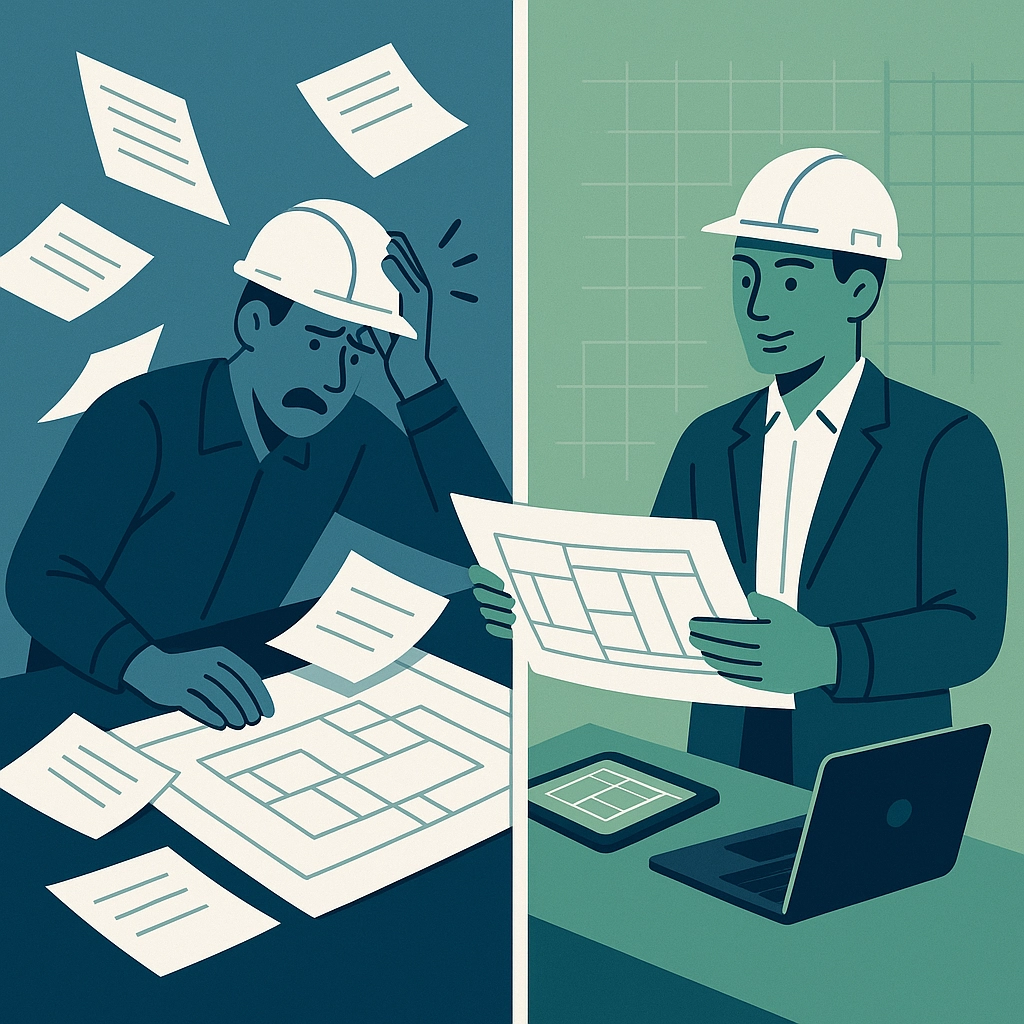
3. Perfect Your Permit Package
The quality of your initial submission directly impacts your timeline. Incomplete applications trigger rejection and revision cycles that can add months to your project.
Your permit package should include:
- Complete architectural, structural, and MEP plans with proper seals
- Energy compliance calculations and documentation
- Accessibility compliance demonstrations
- Fire safety provisions clearly detailed
- Structural calculations properly documented
- Site plans showing all relevant details
- Specification sheets for specialized equipment
Hiring professionals for construction design plans that are specifically prepared for permitting can significantly reduce rejection rates.
4. Leverage Technology and Software
Modern permitting software and digital tools can dramatically streamline the process:
- Digital plan submission platforms that track status in real-time
- Code compliance checking software to identify issues before submission
- Project management tools to track requirements and deadlines
- Documentation systems that ensure nothing falls through the cracks
These tools help maintain organization and provide transparency throughout the approval process, reducing the time spent on administrative tasks and follow-up.
5. Consider Parallel Processing
Rather than waiting for sequential approvals, explore opportunities for parallel processing:
- Separate permits for different project phases (demolition, foundation, structural)
- Early start permits for site preparation while building permits are in process
- Deferred submittals for specialized systems that won't delay initial construction
This approach allows work to begin while more complex aspects of the permit are still under review.
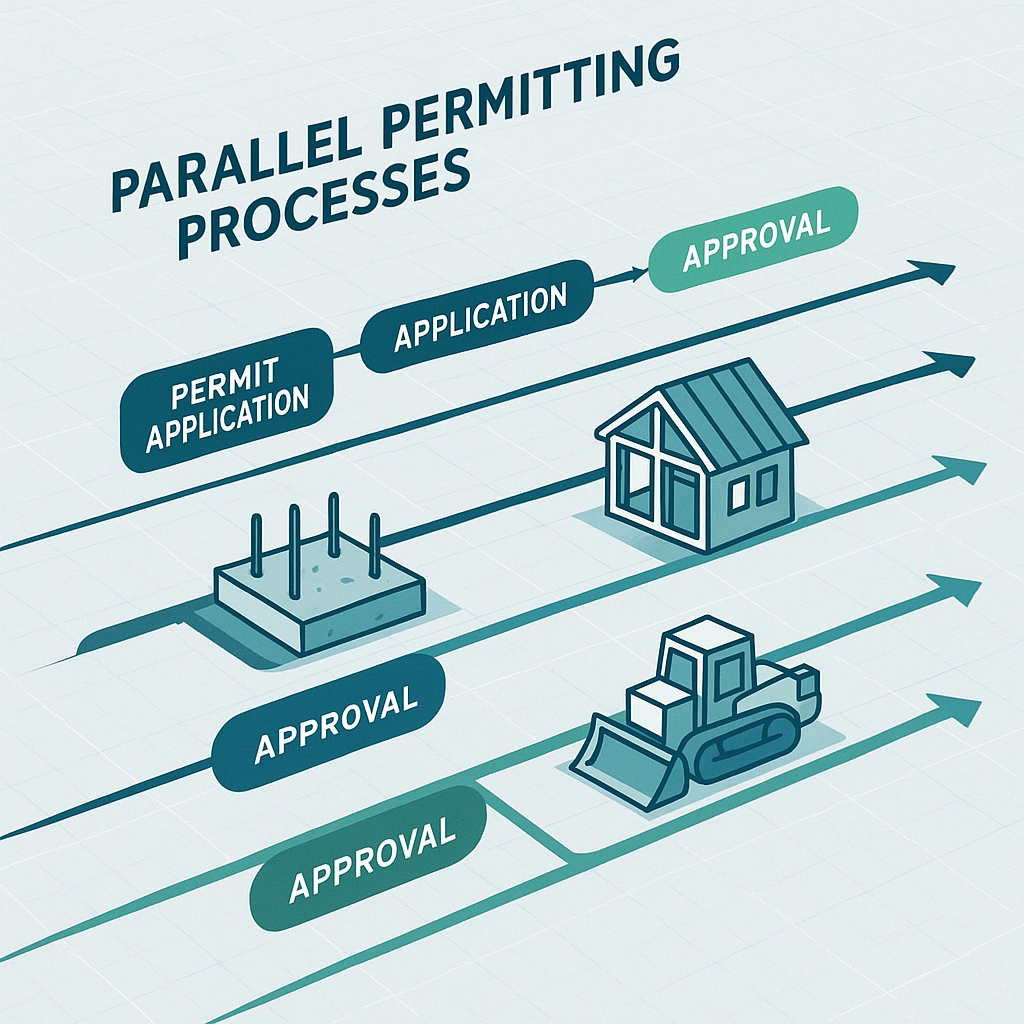
6. Engage Professional Permit Expeditors
For complex projects or challenging jurisdictions, professional permit expediting services provide significant value:
- Jurisdiction-specific expertise that prevents common pitfalls
- Established relationships with reviewing departments
- Full-time focus on moving your permits forward
- Experience navigating unusual requirements or exceptions
Our permit expediting team at Allen-Norris has saved clients an average of 3-4 months on complex commercial projects through specialized knowledge and dedicated follow-through.
When to Get Professional Help
Consider bringing in permitting professionals when:
- Your project is in a jurisdiction known for complex permitting
- You're facing unusual site constraints or building requirements
- You're working with tight deadlines or financial constraints
- Previous submissions have been rejected multiple times
- You're unfamiliar with local codes and requirements
- The project represents significant financial investment
Professional permit expeditors typically pay for themselves many times over in prevented delays and optimized submissions.
Planning for Realistic Timelines
Even with perfect preparation, certain minimum timeframes apply:
- Permit application submittal: Same day to 1 week
- Initial plan review: 2-8+ weeks (jurisdiction dependent)
- Final approval and permit issuance: 1-5 business days once plans are cleared
Build these minimums into your construction schedule to set realistic expectations with clients and contractors.
The Bottom Line: Preparation Prevents Delays
While you can't eliminate the permitting process, strategic preparation and professional guidance can significantly reduce delays. The key is approaching permitting as a critical project phase deserving of proper resources and expertise—not an afterthought.
By investing in thorough pre-submission preparation, creating complete and compliant application packages, and leveraging professional expertise when needed, you can navigate the permitting maze more efficiently and get your projects moving faster.
Ready to stop waiting and start building? Contact our permitting experts at Allen-Norris for a consultation on how we can accelerate your next project's approval process.
